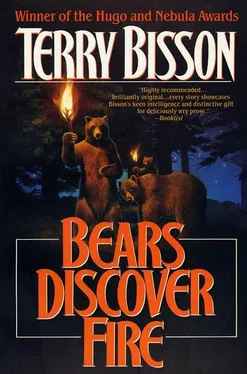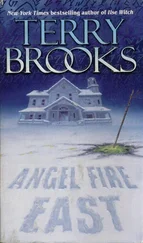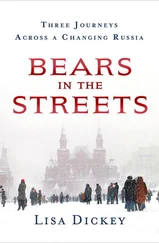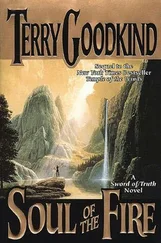The Thumper is a gasoline-powered induction coil the size of the “salamander” we used to warm the greenhouse back when the winters were cold. While Carl cranked it up, I pulled the two cables attached to it out of the truck bed and started dragging them toward the trees; they grew heavier as they grew longer.
“We haven’t got all day!” Carl yelled. I clipped the red cable to a low branch on the farthest tree, and clipped the black one to a steel rod driven into the ground-colloid. Then I got back in the truck.
The Grounds Dean pulled up on his three-wheeler just as Carl hit the switch. A few students hurrying to class stopped and looked around, bewildered, as the current ripped through the pavement under them. Carl hit it twice more. I could see the topmost twigs of the trees flutter, but there was no feeling there, and hardly any far below where the taproots were curled in on themselves in dark and silent misery.
“That oughta wake ’em up!” the Grounds Dean called out cheerily.
Carl ignored him. He was in the Grove, kneeling at the base of one of the oaks, and he motioned for me to come over. “Volunteer,” he whispered, brushing four tiny blades of fescue with his fingertips. “I haven’t seen volunteer in years.” I felt it with my fingertips, an incredibly delicate green filigree, eagerly and shamelessly alive. It was feeding on the nutrients that should have gone to the tree roots, which had somehow lost their will to live.
“I’m sorry I yelled at you, Gail,” Carl said, brushing his knees off as we stood up; awkwardly, he leaned over and brushed mine off too. “I don’t know what’s getting into me.” And it was true: it was the first time he had yelled at me since I had sought refuge in his nursery six springs before.
Carl told the Grounds Dean that we would check on the Oak Grove tomorrow, and we left. But we both knew the electroshock was too little, too late. On the way back to the nursery, Carl didn’t talk about his beloved oaks at all.
Instead, he talked about the volunteer. “Remember when grass just grew, Gail?” he said. “It was everywhere. You didn’t have to feed it, or force it, or plant it, or anything. Kids made money cutting it. Hell, you couldn’t stop it! It grew on the roadsides, grew in the medians, grew up through the cracks in the sidewalk. Trees, too. Trees grew wild. Leave a field alone and it turned into a forest in a few years. Life was in the air, like wild yeast; the whole damn world was like sourdough bread. Remember, Gail? Those were the good old days.”
I nodded and looked away, but not before tears of self-pity sprang unbidden to my eyes. How could I forget the good old days?
By noon on Wednesday the Barbers hadn’t called, so we swung by their place on the way to lunch. The ominous brown edge was still there, but the grass toward the center of the lawn was a brighter green, almost feverish-looking in spots. “At least it’s still alive,” Carl said, but a little uncertainly. I shrugged. I didn’t feel good.
“That girl doesn’t look right to me,” said Lord Byron at lunch. I had to find a chair because I couldn’t balance on a counter stool.
“She’ll be all right,” said Carl. Next to empathy, optimism is his best quality. “And I’ll have the usual.”
Carl spent the afternoon doing the books while I dozed on a cot at the office end of the greenhouse. “What I lose in plants I make up in cybers,” he said. “I’m the only nurseryman in the state who still services organics—but you know that. Funny how it all balances out, Gail. First I make money poisoning or cutting the grass; then I make more trying to keep it alive. When that goes, there’s a fortune in greenlawn. Paint it every spring. Same with trees. First it was sales. Then it was maintenance, life supports. Now it’s electrics. Hell, I don’t know what I’m complaining about, Gail. I’m making more money than ever, yet somehow I can’t help feeling like I’m going out of business…”
He talked on and on all afternoon, while I tossed and turned, trying to sleep.
Thursday morning we approached the university with a mounting sense of dread. I had known it all along; Carl knew it as soon as he pulled up beside the trees and shut off the engine. I didn’t even have to get out of the truck to feel the silence through the soles of my feet. There was no life in the Oak Grove. Carl’s pride and joy was dead forever.
The volunteer fescue was gone, too. We got out to look, but it had dried up overnight and only brown blades were left, withering in the network shadows of the bare branches. Maybe the Thumper had killed it; or maybe it had just run out of life, like everything else seemed to be doing these days.
“Nobody’s blaming you,” said the Grounds Dean. He had come up behind us unnoticed and put his hand on Carl’s shoulder. “To tell the truth, Carl, we’ve been having funding problems. I’m not sure how long we could have afforded to keep the ground feed going anyway. What would you think of going to videoleaf? Or we could even try silicy-berbud branch implants, at least for a season or two. But don’t worry, we’re not going to take out these stately oaks until we absolutely have to. They’re like old friends to the students, Carl. Do you know what they call the Grove?”
The Dean looked at me and winked; I guess because he thought I was young. “The students call it the Kissing Grove!”
“It’s not a question of blame,” Carl said. I’d never seen him so depressed. I wasn’t feeling so hot myself.
“You should send this girl home, Carl,” Lord Byron said when we stopped for lunch. “How long has she worked for you? Gay, honey, have you ever taken a sick day?”
“She lives in the greenhouse,” Carl said. “She doesn’t exactly work for me. And leave her cap alone; nobody wants to look at a bald head.”
We spent the afternoon pulling IV fittings. The Delaware Valley Golf Club is one of the fanciest clubs in the Garden State, and the fairways as well as the greens had been organic not so many years ago. This year we had finally lost the battle on the greens. Thursday was the deadline for us to get our hardware out so they could lay the permaturf.
Carl drove the pickup straight up the fairways, ignoring the angry shouts and curses of the golfers. The greens looked like the moon. Carl angrily unscrewed the nozzles and the fittings and threw them into the back of the pickup, but left the pipes under the ground; they weren’t worth the trouble it would take to get them out, at least for one person working alone. I was too dizzy to do much more than watch.
“Every spring it gets worse,” Carl muttered as he bounced across the last fairway, through the ditch, and onto the county road. “Are you okay? Do you want me to pull over?”
I tried to throw up but nothing would come.
Friday I could barely get up. My once dark skin looked pale reflected in the windows of the greenhouse. Carl was tapping on the glass with the truck key. It was already ten o’clock.
“Code Eight, Gail!” he said. “I’m getting the truck.”
It was the Barbers. “I couldn’t understand what she was saying,” Carl said as he pulled out into traffic. He gave me the emergency flasher to plug in and set up on the dash. “But it must be bad. Hell, she was screaming.”
It was a bright, hard spring day; the sky was cruel blue. Route One was jammed and Carl turned on the siren as well as the light. He drove on the shoulder, with one wheel on the asphalt and the other on the green-painted rocks.
By the time we got to Whispering Woods I could see it was already too late.
The neighbors were standing around the edges of the Barbers’ front yard, watching the grass turn yellow, then yellow-green, then yellow again, flickering like an alcohol fire in sickening waves. There was a faint crackling noise and a thin dying smell.
Читать дальше












